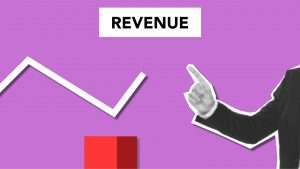How to Determine the Value of Your Business?

Whether you’re looking for a business valuation to sell your business or merely wondering what it’s worth in the current market, you may be at a loss as to where to start. In this post we are going to explain how to determine the value of your business?
Determining the Value of Your Business
Do you need to hire an expert – and if yes, who? Learning to unlock the value of your business can be tricky, but there are experts that can help. You accountant is a good place to start. Some accounts have developed certified business valuation expertise to business owners looking to sell. Alternatively, can you value your business yourself? What is it you need to take into account, and how will you know if you got it right? We answer all of these questions and more below, so read on.
Asset Valuation
The first method you can employ to value your business is asset valuation. Your assets are essentially everything the business owns that has value and can be shown on a balance sheet. They can include property, vehicles, equipment, cash, supplies, even intellectual property.
The usual method is to look at the total cost it would take to create a business that has the same assets. You also need to consider whether your business is a going concern or being liquidated, in which case the value of your assets would be much less.
Often difficult to take into account when doing asset valuation is a mysterious factor known as goodwill. In other words, that’s the intangible value of your business. It consists of your reputation, your customer base, the skill of your employees, and so on.
Cash Flow Valuation
You can also consider proper cash flow as a means to value a business. You will need to examine your cash flow statements showing all of your inflows and outflows over a specific period. However, you’ll also need to take into account real-world data. Is your cash flow currently poor due to the effects of the pandemic? Did you have an exceptionally good period that you can’t hope to replicate?
How much do the owners draw out of the business? Owner draws, expenses, and compensation are frequently added back to raw cash flow or EBITDA (Earnings Before Interest, Taxes, Depreciation, and Amortization). The business needs to be represented in its raw earning state because some of the components of EBITDA are related to financing and tax consequences and it is unknown what the new owner’s tax filing situation is.
All of these factors need to be considered if you are basing your business’ value on cash flow alone. Make detailed notes when going over your cash flow. After all, you know what each rise and dip means. All the data will come in handy when negotiating with a buyer.
Gross Sales Valuation 
Similarly, you can also take into account your gross sales over a specific period (three or five years of revenue). However, the same issue arises as with cash flow valuation. You never know if the same level of sales and marketing can be replicated. You may be able to double them in the near future, or they may never see similar heights.
The value of your stock can also be taken into account because the business is expected to sell it in the near future. Of course, you will need to be rather conservative with these estimates, as prices may fluctuate or demand may drop.
Other Business Valuation Considerations
You’ll also want to consider all the different ways your business is earning money. For example, you may be seeing an income from sales, but you also may be hosting events, working with clients, offering services, and so on.
Multitude of Revenue Streams
Considering all available (and even potentially available) revenue streams is especially important when determining the value of an online business. For instance, a website might currently be earning through ads alone but also have the potential to do affiliate marketing or even sell its own products. All of these different potentials should be carefully taken into account when you are considering the value of your business.
Should I Value My Business Myself?
If you feel you are not up to the task of calculating the value of your business, you are advised to enlist the help of a professional. There are business valuation specialists who will take all of these factors into account and compare them against their own vast experience. When looking for one, make sure they have already worked in your industry and have valued businesses of similar size, operating in similar markets.
Why is There no Accurate Business Valuation Method?
We’ve just given you several ways to value your business, but know that none of them will be completely accurate. In fact, the only true valuation is the one you agree on with a buyer after you have presented them with all the relevant information. Sure, if you use more than one of these business valuation methods, you’ll be able to determine a more accurate number. But bear in mind that the figure you come up with is only worth something if you find someone willing to pay it.
Don’t forget that the value of your business may change rather abruptly. The pandemic has certainly taught us that nothing is certain. We’ve learned that some businesses may become more valuable overnight while others tank. Just consider the meal delivery and tourism sectors, respectively.
Market fluctuations and other economic considerations, new technological developments, and a variety of other factors will significantly impact what you can sell your business for. As long as you’re upfront about all the details during the process, you should be able to make a profit.
Determine the Value of Your Business
Valuing a business can be a lengthy and complex process based on customer lifetime value, growth of the business, and of course the cash flow, assets, and revenues of the business. Since you can never truly trust the outcome, you may be wondering should you even try to tackle it. Understanding what your business may be worth will give you a good starting point in terms of asking price. So, always try to value your business before you start negotiating with a buyer. Even if someone offers you a figure that seems fantastic, they may be going well below the actual value of your business.
















Leave a Reply